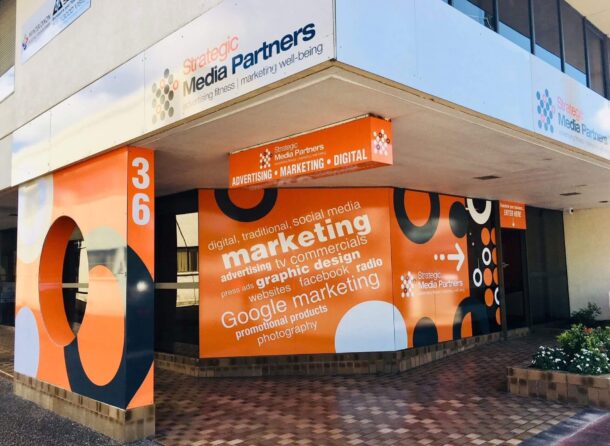 Do you find yourself stuck when finding new web design clients? Whether you own a web design company or work as a freelancer, expanding your audience and attracting clients can be challenging.
Do you find yourself stuck when finding new web design clients? Whether you own a web design company or work as a freelancer, expanding your audience and attracting clients can be challenging.
Talking from experience: there are times when I can not find people interested in my work. If that’s the case for you right now, let me tell you not to worry.
This guide will analyze the best practices I use to attract new web design clients and how you can easily customize them to fit your needs and preferences. First, we will explore why it’s essential to use more than one way to acquire clients in 2022.
Why Should You Seek Innovative Ways to Attract Clients?
Let’s start with a personal conviction: There are enough customers to cover our niche’s supply. A common mistake most web designers make is looking in the wrong place.
Do not get me wrong, the quality of your work is always the most important thing. The better your services are, the more clients you will eventually get. But if you want to prove your talent online, you need to expand your audience.
Remember that the market is highly competitive. And so you need to follow certain steps and choose the best platforms.
7 Best Ways To Attract Web Design Clients in 2022
Although there are many ways to attract web design clients online, some prove to be more effective than others. Let us explore them one by one:
1. Use Marketplaces for Freelancers Such as Upwork, Indeed
Whether you own your web studio or are just getting acquainted with being a freelance web designer, marketplaces for freelancers are a great way to attract new clients. The same goes for well-known web design job boards like Dribbble, Twine, and WordPress Jobs.
But in general, marketplaces for freelancers are more effective as these platforms attract thousands of buyers/clients every day. The best way to attract clients is to create and polish your profile and respond to relevant job offers.
However, it is equally important to choose a platform that is not exploitative but also has numerous clients in the web design niche. Although Upwork and Indeed are the two most popular, several other platforms meet these requirements, including Freelancer, 99 Designs, Guru, Upstack, TopTal, and PeoplePerHour.
2. Search on LinkedIn
Many would argue that social media platforms are the best way to attract web design clients these days. While this is true to a certain extent, not all social networks have the same impact on professionals. I have found that LinkedIn is the number one platform that a web designer should invest time and effort into.
The reason is simple; the platform’s goal is to bring professionals together. So, if you create a top-notch LinkedIn profile, you can quickly expand your audience and find people interested in buying services. The process is quite simple because all you need to do is:
- Create a professional bio: Mention what you do and who are the people you can help via your services.
- Optimize your profile’s About (personal info, website and portfolio info, etc.) and Experience (previous projects) sections.
- Use the LinkedIn filters to connect with individuals and companies.
- Personalize your invitations and respond via DMs to people inviting you.
This may sound like a lot of work, and believe me, it is. Still, if you want to attract more clients via social media platforms, LinkedIn is the best way to go.
3. Pay Attention to your Portfolio and Website
Regardless of how many connections you have on LinkedIn, clients need to trust that you are the best person for a project before hiring you. And there’s no better way to do that than to have a comprehensive portfolio and website.
Websites like Dribble and WordPress allow you to create portfolio websites quickly and efficiently. As a web designer, you can treat your website like a personal project and use your UI and UX knowledge to outshine your competitors.
4. Create Social Proof
In a few words, social proof is a way to prove to new clients that they should mimic the behavior of your existing clients by hiring you for their project.
To do this, you can create a page with Google reviews, collect testimonials/references, take screenshots of your conversations with clients and capture their feedback. Then all you need to do is present them on your portfolio website, in your social media posts/stories, etc.
5. Use Word of Mouth
Apart from asking your existing clients for referrals, you should try to build a deep professional relationship with them. This will automatically help them to recommend your services through word of mouth.
In many cases, word of mouth has proven to be much more reliable than traditional advertising methods (email marketing, SEO tactics).
6. Speak at Events and Podcasts
Say you are an experienced web designer, and all you need is to expand your target audience. In this case, speaking at events is a fantastic way to build authority. Of course, becoming a public speaker is not easy, especially if you’re a beginner.
This is where podcasts come in handy. By appearing as a guest on podcasts (or webinars), you can easily get your name out there, connect with people interested in web design, and eventually attract new clients.
Start by finding communities (e.g., Facebook groups for web design) and communicate with active (or just interested) people in the web design niche.
7. Offer Free Advice to your Audience
Don’t get me wrong, I know that offering something for free is not the best thing. Still, by creating free content and offering free advice, you can make people take notice of your talent.
Likewise, answering questions on social media platforms and creating valuable content is a great way to convert your website/social media visitors into customers.
Wrap Up
Remember that the most important thing in attracting new clients is the quality of your work. This may sound obvious, but believe me, it’s more than just a rookie mistake.
Let’s close with this; the tips listed above will allow you to work harder but smarter. After all, that’s all you need to build authority as a web designer and attract new clients.
The post How to Find Web Design Clients in 2022 first appeared on Webdesigner Depot.

